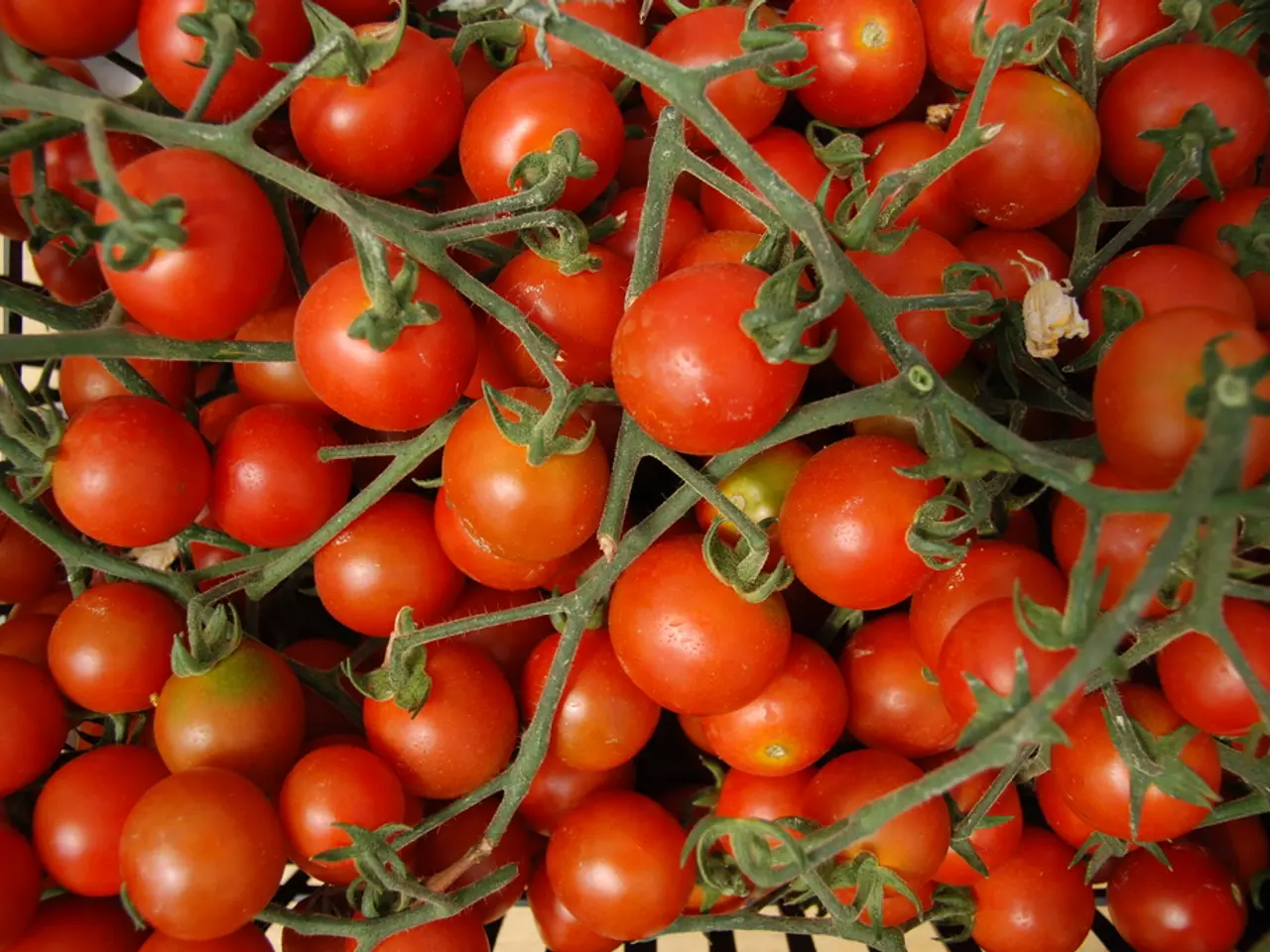Fruits and Vegetables Diversify TPS Towns: Strawberries and Tomatoes Boost Community Morale
Toyota's Carbon-Neutral Agriculture Boosts Productivity and Benefits Local Communities
Toyota's foray into agriculture is not about profits, but about fostering stronger connections with local communities and contributing to them through technology. The Japanese automotive giant is turning to strawberry and tomato farming, leveraging the Toyota Production System (TPS) and efficiency improvements to create carbon-neutral agriculture initiatives.
By applying TPS principles, originally developed for manufacturing, to agriculture, Toyota optimizes farm operations to reduce waste, streamline processes, and enhance resource use efficiency. This results in higher crop yields and quality with lower inputs, supporting sustainable carbon-neutral practices that reduce greenhouse gas emissions.
The Kamigo Plant, for instance, grows strawberries, including valuable varieties, in collaboration with professional farmers. Through careful pruning, trellising, and optimized harvesting schedules, the farm has managed to improve the productivity of its strawberry-growing project by half. Similarly, Toyota's tomato greenhouse at the Myochi Plant makes use of the facility's exhaust heat, contributing to the growth of tomatoes with lower energy consumption.
Toyota's approach integrates electric machinery and smart farming techniques to lower the carbon footprint and costs, while improving productivity and crop quality. The company's innovations in agriculture, which began with carbon neutrality, may have applications beyond farming. These innovations may also prove useful to local farmers, helping to boost their productivity and reduce their carbon footprint.
The local community benefits from Toyota's carbon-neutral agriculture in several ways. Job creation in green agriculture, increased local food production, and strengthened rural economies are all positive outcomes. Reducing emissions and enhancing sustainability helps preserve local ecosystems, supports healthier living environments, and fosters community resilience against climate change impacts.
Toyota's tomatoes are delivered to elderly residents as part of bento boxes prepared by volunteers in Miyoshi City, Aichi Prefecture, spreading smiles throughout the community. The company's agriculture initiative aims to fill production plants with vibrant red fruit (tomatoes), contributing to carbon neutrality and promoting happiness.
While specific data on Toyota's exact programs in tomato and strawberry farming is not detailed, the general approach of combining TPS with carbon-neutral technology effectively boosts agricultural output while benefiting local communities sustainably. The "best-in-town" approach of Toyota is being applied to agriculture, with farm and kaizen (continuous improvement) professionals growing strawberries at Toyota's agriculture project.
In conclusion, Toyota's carbon-neutral agriculture using TPS and efficiency improvements drives higher productivity of tomatoes and strawberries, lower carbon emissions, local economic uplift, and environmental preservation, all aligned with broader carbon neutrality goals. The company's agriculture project is a testament to Toyota's commitment to contributing to society beyond its core business of automobiles.
[References] 1. Toyota's Carbon-Neutral Agriculture Initiatives 2. Toyota's Tomato and Strawberry-Growing Genba 3. Toyota's Efficiency Improvements in Agriculture 4. Toyota's Agriculture Project and Local Farmers
- Toyota's application of the Toyota Production System (TPS) in carbon-neutral agriculture not only optimizes farm operations for higher crop yields and quality but also potentially offers valuable financial benefits for the company, as improved productivity could lead to increased profits in the agriculture sector, linking agriculture with finance.
- As Toyota's innovations in agriculture, such as smart farming techniques and electric machinery, prove useful to local farmers, they could foster a more productive and sustainable local business environment, thereby supporting the growth of smaller farms and contributing to the overall financial vitality of the local community, tying business and community progress.





